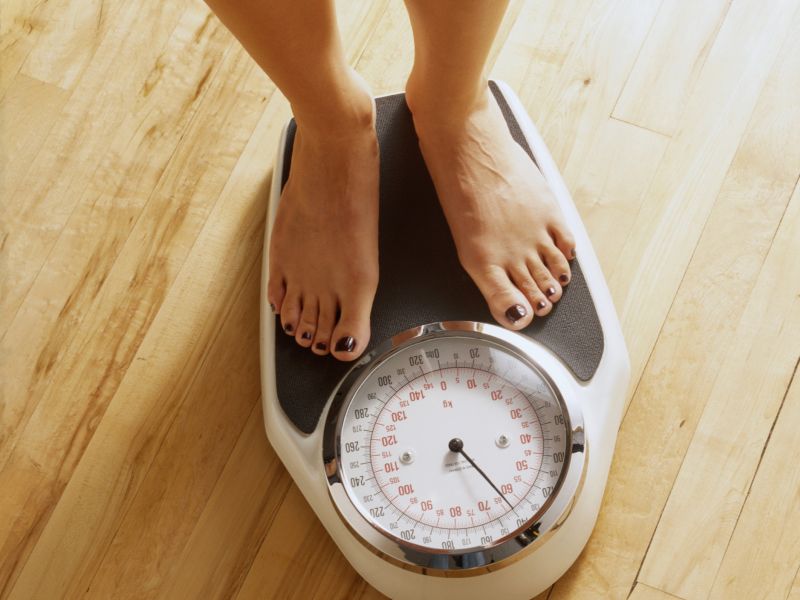Is Fasting a Diet Solution? Fasting on alternate days has health benefits including weight loss and low inflammation. ( courtecy;- medicineNet.com )
Lower Vitamin D Levels Linked to More Belly Fat
 By Len Canter
By Len CanterHealthDay Reporter
Latest Diet & Weight Management News
WEDNESDAY, May 23, 2018 (HealthDay News) -- Research shows that fasting on alternate days has health benefits, including lowering the amount of inflammation in the body.
That's important because inflammation has been linked to many chronic diseases and keeping it under control can increase longevity.
And now there's growing evidence that fasting can be an answer to weight loss, too.
New approaches to fasting are far from the water-only or liquid-diet images you may have of it. What many researchers have been testing are variations on what's called intermittent fasting -- typically one day on, one day off.
For a pilot study done at the University of Illinois at Chicago, participants alternated fasting days with regular eating days and lost about a pound a week over the course of a 12-week study.
It's important to note that on the fasting days, they still ate one meal, which consisted of about 25 percent of their normal daily calorie intake. These 400-to-600 calorie meals followed American Heart Association guidelines with 30 percent of calories coming from fat, 15 percent from protein and 55 percent from carbohydrates.
This way of fasting didn't leave the dieters feeling hungry, which can happen with stricter fasting, with medical fasts that consist of liquid meals and with traditional diets that restrict calories every day.
Alternate-day fasting has since been studied at a number of research centers. In some situations, the fast day is a zero-calorie day and the off-days have their own set of guidelines.
But the bottom line is that these types of eating plans do work.
A review published in the journal Obesity Science and Practice compared alternate-day fasting to day in/day out, very low-calorie diets and found that alternate-day fasting is easier for some people to stick to, plus it often results in losing more fat and preserving more muscle.
Because research studies typically include medical supervision, before you try such a regimen, talk to your health-care provider to see if you're a good candidate for it, and if there are any steps you need to take, unique to your situation.

Copyright © 2018 HealthDay. All rights reserved.
Lower Vitamin D Levels Linked to More Belly Fat

The finding highlights yet another damaging health effect of obesity. Low vitamin D levels have been linked to poor bone health, as well as increased risk for respiratory infection, autoimmune disorders and heart disease.MONDAY, May 21, 2018 (HealthDay News) -- Obesepeople who carry much of their excess fat around their waist are at risk of vitamin D deficiency, new research warns.
"The strong relationship between increasing amounts of abdominal fats and lower levels of vitamin D suggests that individuals with larger waistlines are at a greater risk of developing deficiency, and should consider having their vitamin D levels checked," said study author Rachida Rafiq.
Rafiq is a doctoral student at VU University Medical Center and Leiden University Medical Center in the Netherlands.
Her team is slated to present the findings at a meeting this week of the European Society of Endocrinology, in Barcelona, Spain.
The findings stem from an analysis of data collected by the Netherlands Epidemiology of Obesity study. It linked higher levels of abdominal fat to an added likelihood of low vitamin D levels among both men and women who are obese.
Among obese men, higher levels of total overall fat were also linked to lower vitamin D levels. The same link was not found for obese women.
Among obese women, however, higher amounts of liver fat were linked to low vitamin D, a finding not seen among obese men.
It remains unclear, however, whether low vitamin D causes people to store abdominal fat or whether excess belly fat somehow triggers vitamin D levels to drop, Rafiq said. That will be a focus for future study, researchers said.
"Due to the observational nature of this study, we cannot draw a conclusion on the direction or cause of the association between obesity and vitamin D levels," Rafiq said in meeting news release. "However, this strong association may point to a possible role for vitamin D in abdominal fat storage and function."
Research presented at meetings is considered preliminary until published in a peer-reviewed journal.
-- Alan Mozes

Copyright © 2018 HealthDay.

মন্তব্যসমূহ
একটি মন্তব্য পোস্ট করুন